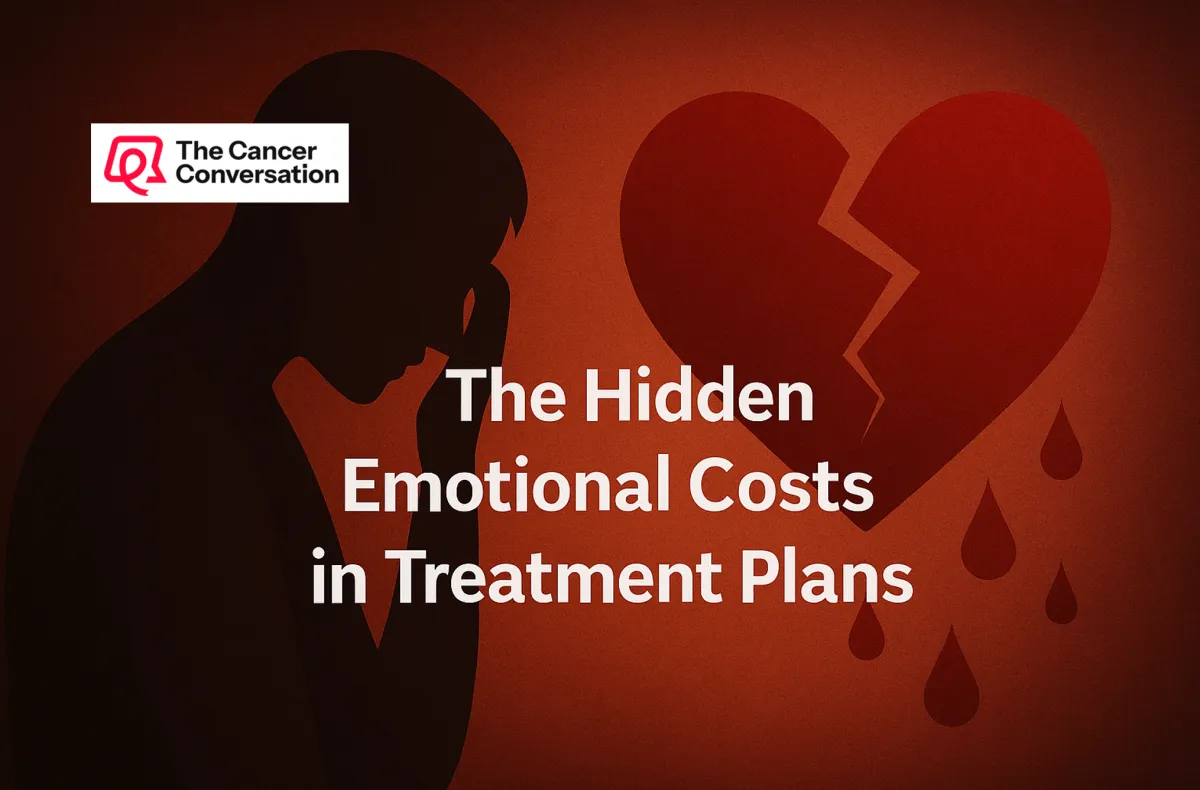
The Hidden Emotional Costs in Treatment Plans
Facing cancer can be an overwhelming journey, with treatments often taking both a physical and emotional toll. While the focus tends to be on the medical aspects, the emotional costs of cancer treatment are equally significant and often overlooked. These hidden emotional challenges can impact not only the individual diagnosed but also their caregivers and loved ones. This post aims to shed light on managing these emotional burdens with holistic cancer care, integrating mind-body wellness for comprehensive support. Join us as we explore ways to empower those affected by cancer, offering hope and resilience through compassionate guidance and community support. 🌻 Learn more about hidden costs.
Understanding Emotional Costs
While the medical aspects of cancer treatment often take center stage, the emotional costs can be equally challenging. These costs affect not only those diagnosed with cancer but also their caregivers. Understanding these emotional burdens is the first step towards managing them effectively.
Impact on Patients
Patients undergoing cancer treatment face numerous emotional challenges. The diagnosis itself can lead to feelings of fear, anxiety, and depression. These emotions can intensify during treatment, affecting overall mental health. Patients might struggle with changes in body image, loss of independence, or concerns about the future.
The emotional toll can also manifest physically, causing fatigue, sleep disturbances, or changes in appetite. It's crucial for patients to acknowledge these feelings and seek support. By recognizing the emotional costs of cancer treatment, individuals can better navigate their journey.
Establishing open communication with healthcare providers and loved ones can make a significant difference. Patients are encouraged to express their feelings and seek professional help if needed. Resources like Mental Health Hotline offer valuable support.
Effect on Caregivers
Caregivers play a vital role in supporting those with cancer, yet they often bear significant emotional burdens themselves. The weight of responsibility can lead to stress, burnout, and even depression. Understanding these challenges is essential to provide effective support.
Caregivers might experience a constant state of worry and helplessness. Balancing caregiving duties with personal life can lead to feelings of being overwhelmed. It's crucial for caregivers to prioritize self-care to maintain their well-being.
To manage these emotional challenges, caregivers can benefit from joining support groups. Sharing experiences with others in similar situations can offer relief and practical advice. Building a network of support is essential for caregivers, providing them with an outlet to express their emotions and seek guidance.
The consequences of not addressing these emotional burdens can be severe. As highlighted on Essential Hospitals, ignoring caregiver stress can lead to long-term health issues for caregivers themselves.
Navigating Cancer Treatment Challenges
Cancer treatment is fraught with challenges, both physical and emotional. Navigating these obstacles requires a comprehensive approach that embraces holistic care and integrates mind-body wellness practices.
Embracing Holistic Cancer Care
Holistic cancer care focuses on treating the whole person, not just the disease. This approach recognizes the interconnectedness of body, mind, and spirit. By addressing all aspects of a person's well-being, holistic care can enhance quality of life during treatment.
Physical well-being: This includes managing side effects of treatment and maintaining a healthy lifestyle.
Emotional support: Accessing counseling and support groups can help address emotional challenges.
Spiritual health: Practices such as meditation or spiritual counseling can provide comfort.
Holistic care can be highly beneficial, as outlined in Blue Brix Health. By integrating various forms of support, patients can experience improved overall wellness.
Integrating Mind-Body Wellness
Mind-body wellness is a crucial component of holistic cancer care. This approach emphasizes the connection between mental and physical health, promoting practices that enhance both.
Mind-body practices such as yoga, meditation, and tai chi can reduce stress and improve mood. These activities encourage relaxation and mindfulness, helping patients manage the emotional costs of cancer treatment.
Integrating mind-body wellness into a daily routine can provide numerous benefits. Patients often report feeling more in control and experiencing reduced anxiety. By focusing on the mind-body connection, individuals can create a supportive environment for healing.
The importance of addressing chronic emotional pain is underscored by Dr. Christopher Connolly. Ignoring these aspects can hinder recovery and overall well-being.
Building a Supportive Community
Creating a supportive community is vital for those affected by cancer. A strong network can provide emotional support, practical advice, and a sense of belonging, empowering individuals through connection.
Finding Cancer Emotional Support
Finding emotional support is crucial for both patients and caregivers. Support groups and counseling services offer a safe space to share experiences and feelings, significantly reducing the emotional burden.
Online forums and local community groups can be excellent resources for connecting with others who understand the journey. These platforms provide opportunities for sharing personal stories, gaining insights, and receiving encouragement.
Join support groups: Engage with others facing similar challenges.
Access counseling services: Professional guidance can offer personalized support.
Utilize online resources: Platforms like Mental Health Hotline provide valuable information and connections.
Empowering Through Connection
Connection is a powerful tool for empowerment. By building strong relationships, individuals can find strength and resilience in the face of adversity.
Real-world examples highlight the importance of connection. One patient shared how joining a local support group transformed her experience. She found solace in shared stories and practical advice, which significantly improved her mental health.
Share experiences: Open dialogue can foster understanding and support.
Build a network: Surround yourself with people who uplift and encourage.
Seek out resources: Take advantage of available services and information.
Creating a community of support can lead to positive outcomes for individuals facing cancer. By focusing on connection, we can empower each other to overcome the emotional challenges of cancer treatment. 🌟








